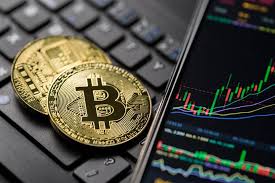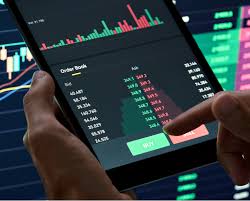
Trading Margin Crypto: Risks and Rewards
Understanding the complexities and nuances of trading margin crypto can significantly enhance your trading experience. In this volatile market, where the stakes are high, Trading Margin Crypto click here to learn how trading on margin can work for you. Margin trading allows traders to borrow funds to increase their market exposure, leading to higher potential profits, but also greater risks. In this article, we will delve into what margin trading is, how it works in the crypto ecosystem, its advantages, disadvantages, and best practices for those who wish to engage in this practice.
What is Margin Trading?
Margin trading is the practice of borrowing funds from a broker or exchange to trade assets, allowing traders to leverage their positions. In the world of cryptocurrencies, margin trading offers the opportunity to trade larger amounts than the capital one possesses. For instance, if traders utilize 10x leverage, they can control $10,000 worth of cryptocurrency with only $1,000 of their own funds.
How Margin Trading Works in the Crypto Market
Margin trading in the crypto market usually occurs in two main forms: perpetual contracts and traditional margin accounts. In a traditional margin account, traders can borrow funds against the assets they hold. In contrast, perpetual contracts are types of futures contracts with no expiration date, allowing traders to maintain their positions indefinitely as long as they can meet margin requirements.

Leveraging Cryptocurrency Investments
Leverage can amplify both gains and losses in trading. Here’s how it works:
- Higher Potential Returns: Using leverage allows traders to gain larger exposure than they could without borrowing. This means that when the market moves in the trader’s favor, the profits can be substantial.
- Minimized Upfront Investment: Margin trading enables traders to begin positions without needing to capitalize the full value of the asset upfront. This flexibility can make it easier to enter and exit trades.
- Short Selling Opportunities: Margin trading allows for short selling, which lets traders profit from a decline in asset prices.
The Risks of Margin Trading
While there are significant advantages to margin trading, there are also numerous risks involved:
- Potential for Greater Losses: Just as leverage can amplify profits, it also amplifies losses. A significant price decline can lead to margin calls and forced liquidation of your positions.
- Market Volatility: Cryptocurrency markets are notoriously volatile. Sudden price swings can quickly result in substantial losses for leveraged positions.
- Interest Charges: Borrowing funds incurs interest, which can eat into potential profits, especially for long-term positions.

Margin Requirements and Maintenance
When trading on margin, exchanges require traders to maintain a certain level of equity in their accounts, known as the margin requirement. This ensures that traders have enough collateral to cover potential losses. If the value of a trader’s account falls below this requirement, they will receive a margin call and may need to deposit more funds or risk liquidation of their position.
Best Practices for Margin Trading
To navigate the complexities and pitfalls of margin trading, consider adopting these best practices:
- Start Small: Especially for novices, beginning with smaller amounts of leverage can minimize risk as you learn about the market dynamics.
- Use Stop-Loss Orders: These can help mitigate losses by automatically closing positions at predetermined levels.
- Stay Informed: Continuous learning about market trends, technical analysis, and news can help inform trading decisions.
- Practice Risk Management: Diversify your portfolio and never risk more than you can afford to lose.
Conclusion
Trading margin crypto offers traders a powerful tool to increase their potential profits in a volatile market. However, it comes with significant risks that should not be overlooked. By understanding how margin trading works, the associated risks, and implementing best practices, traders can strategically position themselves to make informed decisions. Always remember that leveraging can backfire, so practice caution and thoroughly research before jumping into margin trading.
发表回复